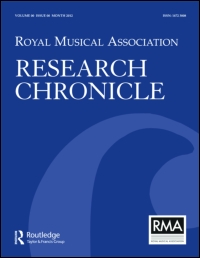No CrossRef data available.
Article contents
The Will of Pelham Humfrey
Published online by Cambridge University Press: 01 January 2020
Extract
On 30th July 1674 the will of Pelham Humfrey was proved in the Court of the Dean and Chapter of Westminster. Humfrey, who remains perhaps most elusive among major composers of the Restoration period, had died at Windsor some two weeks earlier. The location of the will in the Archives Department of the City of Westminster Public Library has provided the longest known example of his handwriting. Manuscripts which have hitherto been considered as possibly being in Humfrey's hand may now be confirmed or rejected as autographs with confidence. The only other unquestionable source of his hand is the minute book of the Corporation of Music in which there are six examples of his signature written between 1672 and 1674. All but one of these are signed exactly as he signed his will; the one differs only in that the christian name is written ‘Pelm’.
- Type
- Research Article
- Information
- Copyright
- Copyright © Royal Musical Association, 1969
References
1 will no. 553Google Scholar
2 BM Harl. MS 1911Google Scholar
3 Music Review, xxv (1964), p.85Google Scholar
4 Barber Institute MS 5001, p.179. Shaw, Watkins: ‘A collection of Musical Manuscripts in the Autograph of Henry Purcell and other English Composers, c. 1665–85', Bibliographical Society, 1959, p.130.Google Scholar
5 f. 6v-f. 9. The source is fully described by Watkins Shaw in ‘A Cambridge Manuscript from the English Chapel Royal', Music and Letters, xlii (1961), p. 263.CrossRefGoogle Scholar


